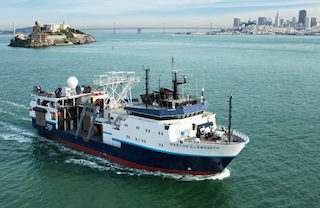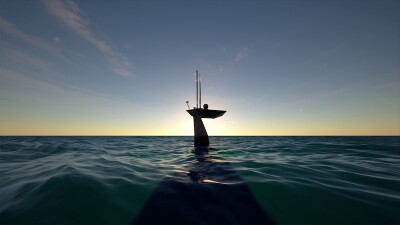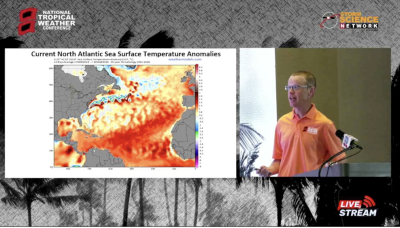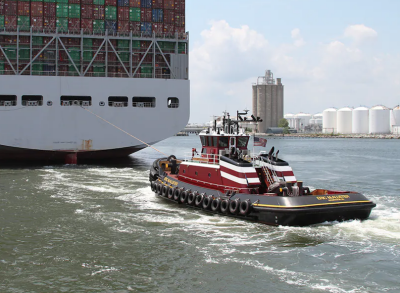While friends and foes of mid-Atlantic drilling debate over seismic surveys, a third group is unwillingly part of the argument: ocean scientists who study ancient sea level changes.
The National Science Foundation is funding a summer cruise by the 235'x56'x19'6" research vessel Marcus C. Langseth off New Jersey, towing an air gun array to penetrate sub-seafloor sediments with sound waves. Greg Mountain, the project’s primary investigator and a professor at Rutgers University, said 3-D images from the survey would culminate years of research into how fast rising and falling sea levels changed over millions of years.
The shoreline has been as much as 50 miles inland, “almost to the New Jersey Turnpike, and as far as 75 miles out” during the last ice age, Mountain said.
The Marcus C. Langseth. Photo courtesy of Columbia UniversityThat’s important for policymakers to know in places like New York City, where billions will be spent on new flood protection after hurricane Sandy. No matter what you think of climate change, there’s no arguing with tide gauges that show sea level creeping up faster along the mid-Atlantic.
But environmental groups, who oppose seismic surveys for offshore oil and gas, turned their sights on the Langseth when the project was first scheduled for 2014, and even got New Jersey Gov. Chris Christie’s administration to back them up in federal court.
A second try this summer could disrupt fish movements and injure marine mammals, said Cindy Zipf of the New Jersey-based group Clean Ocean Action. Mountain was shocked by the sudden resistance, particularly from fishermen. “I’ve been told we’re going to decimate the industry ...We’re going to be in an area 24 miles by 10 miles for 34 days,” he told me last spring.
Project sponsors say they can use safeguards and mitigation to minimize effects on marine mammals, as done in previous surveys. University lawyers fought back on the scientists’ behalf, defeating a bid by New Jersey state officials to get a federal court injunction. But the $369,000 project stalled anyway, when the Langseth had a mechanical failure and had to return to New York.
The fight continues with a new tactic.
“The state will continue to oppose seismic testing off New Jersey,” state environmental commissioner Bob Martin told a gathering of New Jersey outdoors writers March 26. State officials are telling the National Science Foundation that the project violates the federal Coastal Zone Management Act, which gives state governors some powers to oppose projects in federal waters, Martin said.





